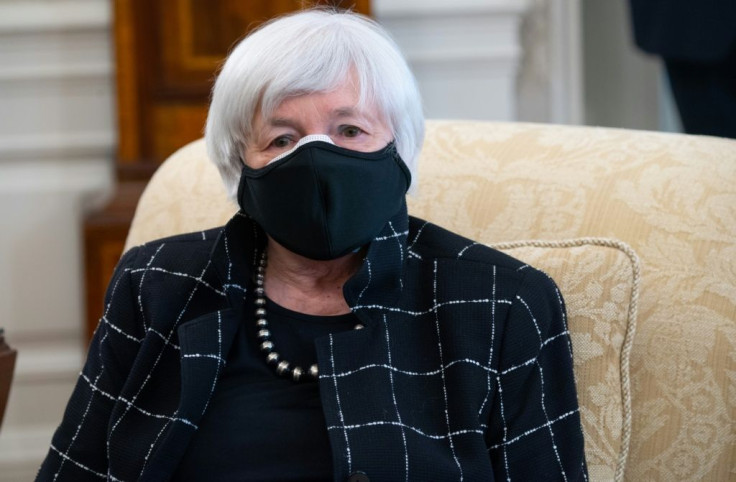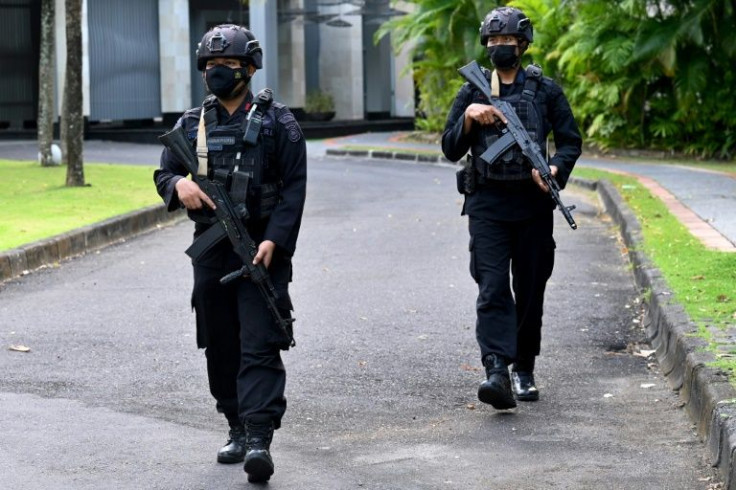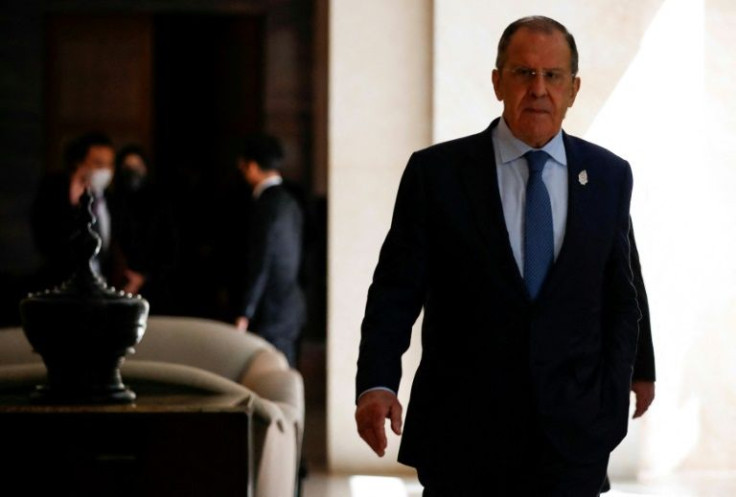Russia's War In Ukraine 'Greatest Challenge' To Global Economy: Yellen
Russia's war in Ukraine poses the greatest threat to the global economy, US Treasury Secretary Janet Yellen said Thursday as G20 ministers prepare to start talks in Indonesia.
Moscow's invasion has sent inflation soaring at a time when the world is struggling to recover from the Covid-19 pandemic, endangering the gains of the past two years and threatening widespread hunger and poverty.
"Our greatest challenge today comes from Russia's illegal and unprovoked war against Ukraine," she said on the resort island of Bali ahead of a meeting between finance ministers from the world's top economies and central bank governors on Friday and Saturday.
"We are seeing negative spillover effects from that war in every corner of the world, particularly with respect to higher energy prices, and rising food insecurity," she added.

"Representatives of Putin's regime have no place at this forum."
Yellen said she will continue to press G20 allies at the meeting for a price cap on Russian oil to choke off Putin's war chest and pressure Moscow to end its invasion while bringing down energy costs.
"A price cap... is one of our most powerful tools to address the pain that Americans and families across the world are feeling at the gas pump and the grocery store," she said.
"A limit on the price of Russian oil would deny Putin revenue his war machine needs."
She expressed hope that India and China would join such a cap, saying it "would serve their own interests" to put downward pressure on prices for consumers globally.

But she refused to be drawn on whether Western officials will stage a multi-nation walkout when Russian officials speak, as they did at a G20 meeting in Washington in April.
"It cannot be business as usual," she said. "I can tell you that I can certainly expect to express in the strongest possible terms my views on Russia's invasion."
"I expect that many of my colleagues will do the same."

Russian Finance Minister Anton Siluanov will only attend the talks virtually, a week after Foreign Minister Sergei Lavrov found himself outnumbered by G20 counterparts in their criticism of Moscow's military assault.
Ukraine is a vital exporter of wheat, grains and sunflower oil, but shipments have been disrupted since Russia invaded in February, creating a policy headache for world leaders as well as the risk of a humanitarian crisis.
The Treasury chief, who arrived in Indonesia after meeting her Japanese counterpart in Tokyo, said it was "troubling" to see the impacts of the war, contributing to higher energy prices, food insecurity and the rising prospect of hunger globally.
She said she will press G20 countries to do more for developing countries "given the deteriorating global economic conditions" since Moscow's invasion.
"A key objective of this trip is to push G20 creditors including China to finalise debt restructuring for developing countries now facing debt distress," she said.
Turning to Sri Lanka, whose leader fled the country this week after mass protests over the country's dire economic crisis, Yellen said she hoped Beijing -- a major creditor of the South Asian island -- would step in to help.
"Sri Lanka is clearly unable to repay that debt and it's my hope that China will work with Sri Lanka to restructure the debt," she said.
Yellen's comments echo the head of the International Monetary Fund, who said Wednesday that the global economic outlook had "darkened significantly" because of Moscow's invasion, just months after it revised down its global growth forecast for 2022 and 2023.
The IMF is "projecting a further downgrade to global growth" in 2022 and 2023, Kristalina Georgieva said in a blog post published ahead of this weekend's meeting.
The risk of "social instability" was also increasing because of rising food and energy prices, she wrote.
But there was substantive progress made in attempts to break the impasse on Wednesday after Russia and Ukraine met in Turkey for their first direct talks since March on a deal to relieve the food crisis caused by blocked Black Sea grain exports.
UN Secretary General Antonio Guterres called it a "ray of hope to ease human suffering and alleviate hunger around the world" ahead of another planned round of talks next week.
© Copyright AFP {{Year}}. All rights reserved.





















